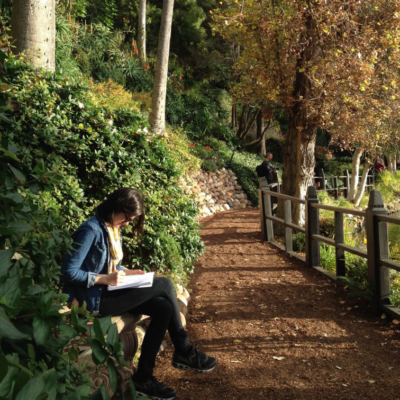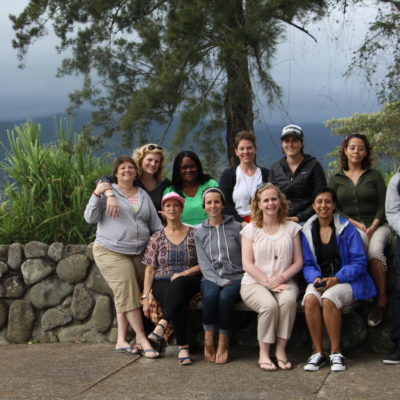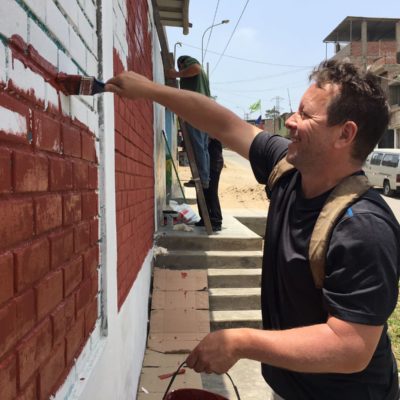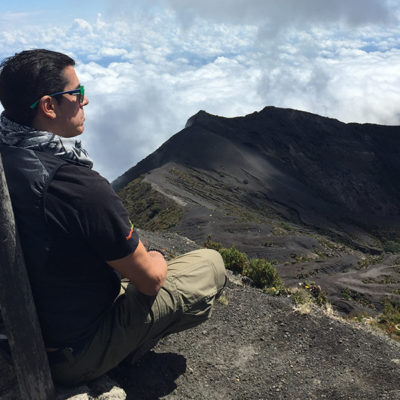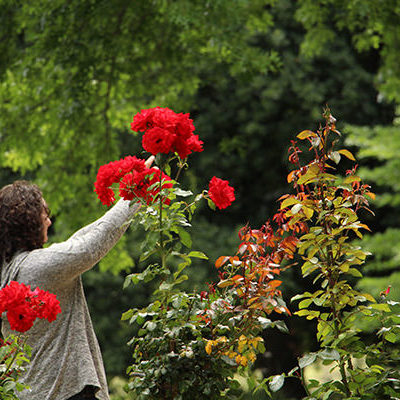
Costa Rica Odyssey: Country
Country
Free Time
Because of the nature of the program and all of the experiences we want to offer, there is limited free time. However, we have built in time for reflection and rest as well as the option during a couple of afternoons/evenings where you can head out shopping/sightseeing and stay out to have a meal on your own or with a smaller group (at your own cost).
In & Around the Orosi Valley
Not too far from San Jose, Orosi is a peaceful community in the province of Cartago. Orosi features an incredibly tranquil and serene setting among the lush forest of the Costa Rican countryside. You will love the seclusion of the Orosi Valley while you escape the hectic hustle and bustle of daily life.
The closest city to where we are staying is Cartago, one of the oldest and largest towns in the country. You will be able to find any amenities or toiletries you need here.
San Jose is about 35 km away, and is the cultural and entertainment capital of Costa Rica. We will have our farewell dinner here.
Culture
- Costa Rican culture combines Spanish colonial practices with the honor and pride of their indigenous heritage, with an additional mix of Jamaican, Chinese, and other immigrant cultures lending character and customs.
- Most Costa Ricans are Catholic, with the indigenous people having mixed beliefs of Christianity along with native religions.
- Costa Ricans are generally considered to be friendly and laid-back.
- Most Costa Ricans dress neatly. Even though the weather is warm, men and women generally wear long pants.
- Tipping: While Costa Ricans rarely tip in restaurants, there is no rule that says you can’t if you’re pleased with the service, and it will be very much appreciated. Taxis aren’t usually tipped, and remember to negotiate the price before you get in the cab. Do tip hotel porters and bagboys at the airport.
Language
The official language of Costa Rica is Spanish. The government also recognizes several regional indigenous languages.
While you will sometimes encounter people who speak English, be prepared to mostly have to get by using Spanish, especially at your volunteer site, and even in restaurants and stores.
Brush up on key phrases, pronouns, and verbs. A great placed to start is a free app for your phone called Duolingo. Start now and do a few short lessons everyday.
Learn numbers (1-20, and tens up to 100) so that you can bargain at the markets!
Another great tip is to watch a movie that you are very familiar with in Spanish. This helps you get a feel for the tone of the language.
Most importantly, many volunteers have found it helpful at their volunteer sites to have flashcards on a ring or necklace with key phrases on them. You can get an example of some from CCS.
Weather
In September, the average high is around 80 degrees F, and average low around 63 degrees F. However, they say you can experience all four seasons in one day in Costa Rica, so be sure to dress in layers and bring a rain coat and comfortable shoes that you don’t mind getting wet. It is the rainy season, so pack rain gear!
For the latest weather in Cartago, check here.
Safety
Your safety is our number one priority at A Fresh Chapter, and we want to ensure you are informed so you can make smart decisions throughout your time in Costa Rica.
When you are traveling to any major city in the world, there is bound to be crime. However from our experience, Costa Rica feels just as safe, if not safer than living in New York City! Here are a few smart traveler tips to keep you & your belongings safe while in Costa Rica.
- Do not take valuables to your volunteer placement. You will not need any money or your cell phone while you are at your placement in the morning. You will not be bringing your camera until near the end of your placement and if/when you do, be sure to carry it in a small bag and leave it on your person when you aren’t using it.
- When heading out, take only the amount of cash you will need for the day or bring along your debit/credit card. We suggest carrying your money in your front pockets or in a purse/bag. Petty theft is the most common form of crime in the city, so just be aware of your surroundings when you’re out and about and don’t flash your money, phone, or camera when walking down the street.
- When you go for a walk or a run, please do not wear your headphones, as this can make you an easy target for petty theft.
Just remember that we will do everything in our power to keep you safe, and as long as you are aware of your surroundings, you are in for a trip of a lifetime!
Smart Traveler Enrollment Program (STEP):
U.S. citizens are encouraged to enroll in the Smart Traveler Enrollment Program (STEP). U.S. citizens without internet access may enroll directly at the nearest U.S. Embassy. By enrolling, U.S. citizens make it easier for the embassy to contact them in case of emergency.
Medical Treatment:
As part of our partnership with CCS we offer comprehensive medical insurance to all participants. Treatment, if needed, is done by English-speaking doctors and accompanied by both A Fresh Chapter representative and a CCS representative. All selected participants will receive more specific information and details about coverage.
Currency
- Spending money of $75-$250 per week is suggested, for things like optional activities, snacks or meals out, shopping, etc. These costs vary depending upon the participant (and often, how much shopping they want to do!)
- The currency in Costa Rica is the Costa Rican colón (₡). For an up-to-date exchange rate, click here. Currently the exchange rate is about 570 colones to 1 US Dollar. The currency code for Costa Rican colón is CRC, and the currency symbol is ₡. Also, US Dollars are widely accepted in Costa Rica.
- It is easiest to access money through ATMs. The PLUS system is the most widely distributed international ATM (CIRRUS is available at many major tourist destinations). It’s also beneficial to bring a credit card and some cash. Remember to notify your bank institution or credit card holder in order to tell them that you will be using your card abroad.
- Cash – we suggest bringing only $50-100 in US currency, in case of emergencies. Carry the majority of your money on a debit/credit card. Cards can be easily replaced, but cash cannot.
- You will need cash for things like open air markets and cabs. Make sure you have small bills for negotiating at the markets and paying in exact change! For most other outings, like eating at restaurants or general shopping, you can pay with your debit/credit card.
- Traveler’s checks may be used as a back-up in case of emergency, but it is not recommended to use this as a primary method of accessing money.
- Due to a high standard of living along with international tourist traffic, the Latin American tradition of haggling is uncommon in Costa Rica. Negotiating prices at outdoor markets is acceptable, however.



